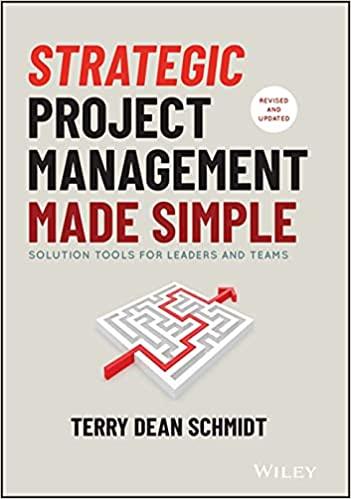- What is the contribution margin and cost of goods sold (COGS) per case?



HICKORY HILL SMOKED FOOD COMPANY Background Hickory Hill is a well-established smoked foods company specializing in smoked turkeys and has been selling its products throughout the northwestern part of the continental United States since 1967. Initially owned and operated by a German immigrant family, the key to the company's success lay in a secret smoking process native to Rhineland, Germany. By 1998 , the firm owned 250 retail outlets in addition to 400 franchise arrangements. Though the company sold a variety of turkey products, its competitive strength lay in one particular type of smoked turkevs: Tender Most (2010 sales: $12,900,000 ). The 2011 sales were forecasted to have a 12% growth over the 2010 sales level. The turkeys were supplied by Kentucky Meadow Turkeys, Inc. (KMT) a subsidiary of Hickory Hill. KMT cleaned and smoked the turkeys using a patented process, and provided the necessary industrial packaging for safe shipment to the retail outlets. Hickory Hill coordinated the remaining functions. The cured and packaged turkeys are sold to the retail outlets on a FOB destination basis. Approximately 60% of the sales revenue for Tender Most was attributable to direct variable costs; 75% of the direct variable costs were estimated to be actual turkey costs. These costing percentages were expected to hold for the next few years. Tender Most was sold to retail outlets for $7.50 per pound. Products The smoking process employed by KMT had some unique characteristics which clearly differentiated Hickory Hill's products from those of its competitors. The Hickory Hill smoked turkeys could be refrigerated for up to 14 days without spoiling. Moreover, they remained fresh and edible for another seven days even without refrigeration. These features, however, did not permit the company to engage in forward buying since the freezer costs were relatively high. Consequently, the company did an internal purchase of the turkeys from KMT in simple economic order quantities. It took an estimated 8 days for the railroad freezer cars to bring the smoked turkeys from KMT's factory to Butte, Montana (Hickory Hill's centralized distribution point), and another two days on average for the commercial trucks to deliver them to the various retail outlets from the distribution center. Tender Most was shipped in the pack size of 25 pounds. The inventory carrying costs were 18%, and the in-transit inventory carrying costs were 14% per annum. The order processing costs were estimated at $109 per order. Hickory Hill paid $11.75 per hundred pounds shipped for the refrigerated railcars in freight, and another $14.65 per hundred pounds for the commercial trucks (LTL shipments to the stores, on a daily. basis). This case was prepared by Rajiv P. Dant and Daniel L. Kurfees, Appalachian State University, Boone (a member institution of the University of North Carolina) for the purposes of classroom use. Revised 2012 by Mary C. Holcomb. Planning Issues for 2011 From a logistical standpoint, management wanted to examine two issues for the planning year of 2011. In 2010, Hickory Hill found itself out of stock of Tender Most on several occasions while the fresh goods were in transit. Since Tender Most was one of their largest selling brands, the company wanted to minimize its costs of lost sales by determining the best reorder point and the best order size. The sales department found the following distribution of daily demand from retailers for 2010 on reviewing the last 50 working days: The current reorder policy was to place fresh orders as soon as the on-hand inventory was down to 48,575 pounds of Tender Most (1,943 cases). Management wanted to use this information to objectively determine: 1) the optimal reorder point, and once this was fixed, 2) to compute the optimal quantity of cases to order each time. In addition to the objectives stated above, management wished to evaluate an alternate mode and methods of transportation. The company could stop the use of the freezer In addition to the objectives stated above, management wished to evaluate an alternate mode and methods of transportation. The company could stop the use of the freezer cars for delivery up to Butte, Montana, and use trucking instead. The delivery to the retail outlets would also continue to be done by motor carrier. It was decided that if any changeover is economical for the company and the new system (if any at all) works well for Tender Most in 2011, in subsequent years, similar feasibility exercises could be carried out for other products. The cost for common-carriage TL transportation was estimated to be $12.50 per cwt. from Kentucky to Butte, MT (expected load of 30,000 lbs.). The lead time for this option is 4 days with a standard deviation of 1 day. In addition to this option, Hickory Hill has been approached by a trucking company with a dedicated transportation proposal. The company has quoted Hickory Hill a rate of $5,500 per full truckload trip. Each trailer has a capacity of holding a maximum of 1,680 cases of Tender Most (or 420cwt.). The lead time for this option was 1 day with guaranteed on-time service. The trucking company has the necessary equipment to service the Hickory Hill account if multiple trucks are needed









